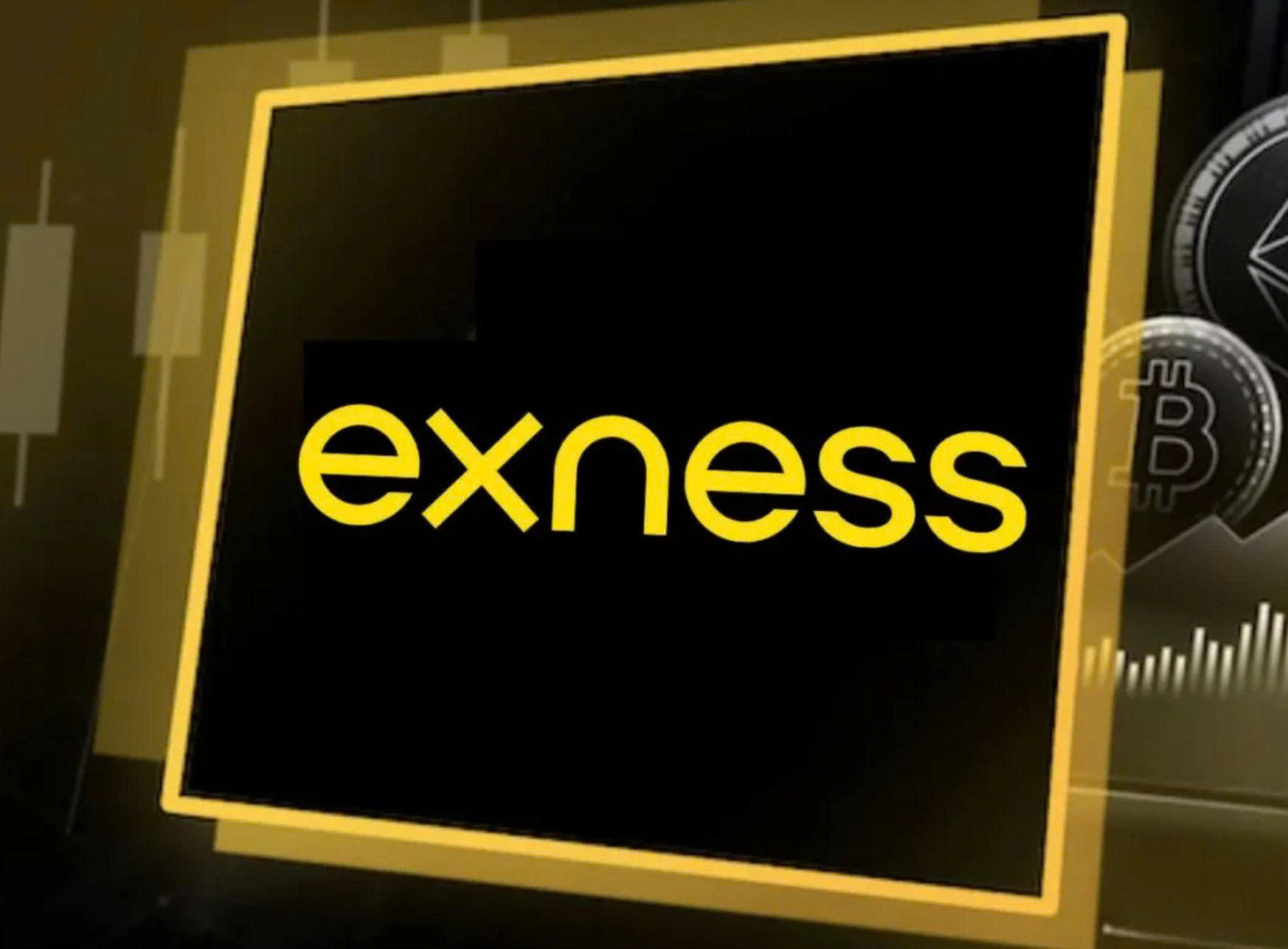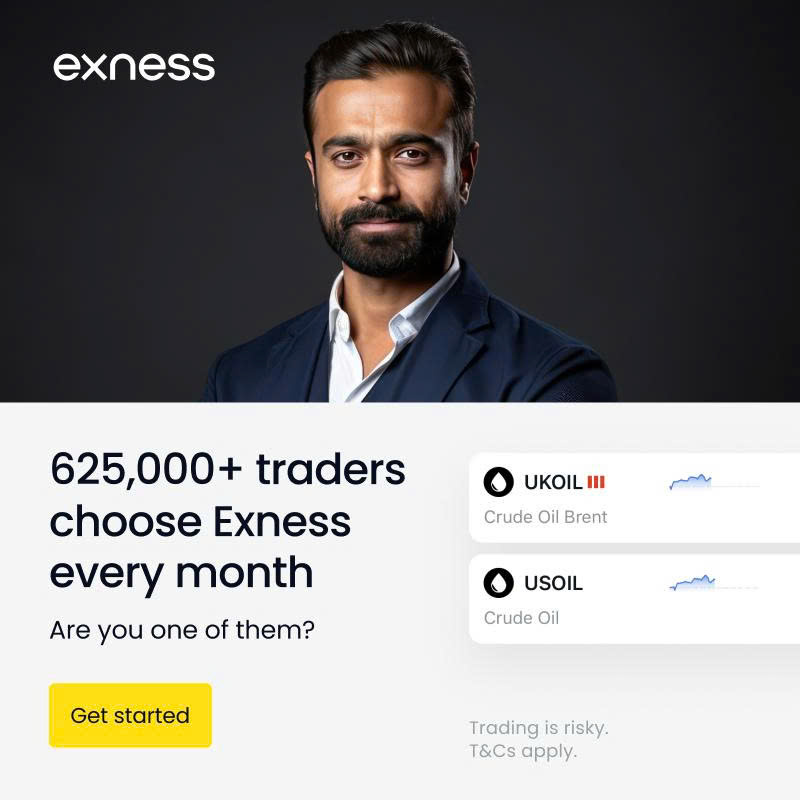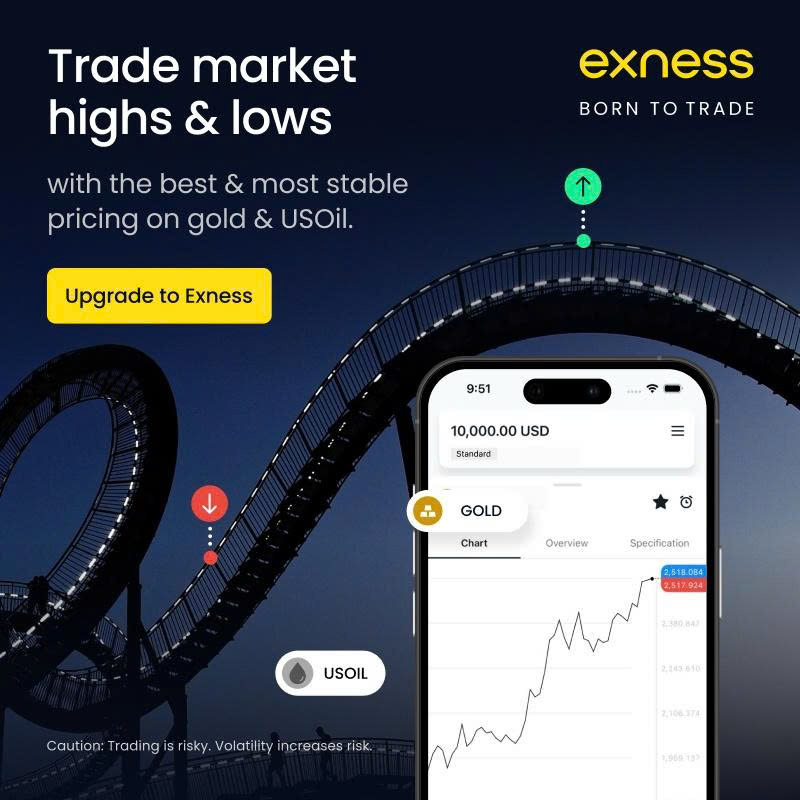
7 minute read
Is Exness App Legal in India? A Comprehensive Guide for Traders
from Exness App India
The rise of online forex trading has transformed the financial landscape, offering individuals in India an opportunity to participate in global markets. Among the platforms gaining traction is the Exness app, a mobile trading tool known for its user-friendly interface and robust features. However, a critical question persists for Indian traders: Is Exness app legal in India? This article explores the legality of the Exness app, its compliance with Indian regulations, the risks involved, and best practices for traders, ensuring you have the information needed to make informed decisions.

✅ Join Exness now! Open An Account or Visit Brokers 👈
Understanding the Exness App
Exness, founded in 2008, is a globally recognized forex and CFD (Contract for Difference) broker headquartered in Cyprus. The Exness app is a mobile trading platform designed to provide seamless access to forex, commodities, indices, stocks, and cryptocurrencies. With features like real-time charting, fast trade execution, and customizable tools, it caters to both novice and experienced traders. The app integrates with MetaTrader 4 (MT4) and MetaTrader 5 (MT5), offering advanced technical analysis and automated trading capabilities.
Exness is regulated by reputable international bodies, including the Financial Conduct Authority (FCA) in the UK, the Cyprus Securities and Exchange Commission (CySEC), and others. These licenses ensure transparency, client fund protection, and adherence to global financial standards. However, the question of its legality in India hinges on the country’s unique regulatory framework.
Forex Trading Regulations in India
Forex trading in India is governed by two primary regulatory bodies: the Reserve Bank of India (RBI) and the Securities and Exchange Board of India (SEBI). These institutions enforce strict guidelines to protect traders and maintain economic stability. Key regulations include:
· Foreign Exchange Management Act (FEMA), 1999: FEMA restricts forex trading to currency pairs involving the Indian Rupee (INR), such as USD/INR, EUR/INR, GBP/INR, and JPY/INR. Trading non-INR pairs (e.g., EUR/USD) is prohibited for Indian residents.
· SEBI Oversight: SEBI regulates financial markets and ensures that only authorized brokers, registered with Indian exchanges like the National Stock Exchange (NSE) or Bombay Stock Exchange (BSE), can offer forex trading services.
· Capital Flow Restrictions: Indian residents are not allowed to transfer funds abroad for speculative trading through offshore brokers without RBI approval.
These regulations create a controlled environment for forex trading, limiting the scope of permissible activities and requiring brokers to comply with local licensing requirements.
Is Exness App Legal in India?
The legality of the Exness app in India is a nuanced topic. While Exness is a legitimate broker with international licenses, it is not regulated by SEBI or the RBI. This places it in a legal gray area for Indian traders. Here’s a detailed breakdown:
· Regulatory Status: Exness operates under global entities like Exness (SC) Ltd and is licensed by authorities such as CySEC, FCA, and the Financial Services Authority (FSA) in Seychelles. However, it lacks registration with SEBI or RBI, meaning it does not comply with India’s specific forex trading regulations.
· Permissible Trading: Indian law restricts forex trading to INR-based currency pairs through SEBI-regulated brokers. Exness offers a wide range of non-INR pairs, which are not permissible for Indian residents under FEMA. Trading such pairs through Exness could technically violate Indian regulations.
· Accessibility: Indian traders can access the Exness app and open accounts, often using alternative payment methods like e-wallets (Skrill, Neteller) or cryptocurrencies due to restrictions on direct INR deposits to offshore brokers. However, using these methods may also breach FEMA guidelines.
· Legal Risks: While enforcement against individual retail traders is rare, trading with unregulated offshore brokers like Exness carries risks, including potential account restrictions, banking scrutiny, or FEMA-related penalties. The RBI has included Exness on its alert list of unauthorized entities, signaling caution for traders.
In summary, while the Exness app is not explicitly banned in India, it operates outside the RBI and SEBI’s regulatory framework, making its use a risky proposition for Indian traders.

✅ Join Exness now! Open An Account or Visit Brokers 👈
Risks of Using the Exness App in India
Indian traders considering the Exness app should be aware of the following risks:
· Lack of Local Protection: Since Exness is not SEBI-regulated, Indian traders may not have access to the same level of investor protection as they would with a locally licensed broker. Disputes or financial losses may be harder to resolve.
· FEMA Violations: Trading non-INR pairs or transferring funds to offshore accounts for speculative trading could violate FEMA, potentially leading to penalties or account freezes.
· Banking Challenges: Indian banks may flag or restrict transactions to offshore brokers. Withdrawals to Indian bank accounts can face delays or compliance checks, prompting many traders to use e-wallets or cryptocurrencies, which carry their own risks.
· High Leverage Risks: Exness offers leverage up to 1:2000, which can amplify both profits and losses. Indian regulations impose stricter leverage limits (e.g., 1:30 for SEBI-regulated brokers), making high-leverage trading riskier.
· Recent Developments: Posts on X reported that Exness removed UPI and bank deposit options for Indian users without prior notice, citing “internal policy.” This lack of transparency has raised concerns among traders.
Benefits of Using the Exness App
Despite the legal uncertainties, many Indian traders are drawn to the Exness app for its advantages:
· User-Friendly Interface: The app offers real-time data, customizable charts, and seamless trade execution, making it accessible for beginners and professionals alike.
· Diverse Trading Instruments: Exness provides access to over 100 currency pairs, commodities, indices, and cryptocurrencies, offering diversification opportunities.
· Fast Withdrawals: Exness is known for instant withdrawals via e-wallets, with many transactions processed in minutes.
· Global Regulation: Licenses from FCA, CySEC, and other authorities ensure a secure trading environment, even if not applicable in India.
· Educational Resources: Exness offers webinars, tutorials, and market analysis to support traders in improving their skills.
Best Practices for Indian Traders
To trade safely and responsibly with the Exness app, Indian traders should follow these best practices:
· Understand Regulations: Familiarize yourself with RBI and SEBI guidelines. Stick to INR-based currency pairs and consider using SEBI-regulated brokers for full compliance.
· Consult Experts: Seek advice from financial or legal advisors to ensure compliance with FEMA and avoid potential risks.
· Use Secure Payment Methods: If using Exness, opt for e-wallets or cryptocurrencies for deposits and withdrawals, but be aware of the legal implications.
· Practice Risk Management: Use demo accounts to test strategies and limit leverage to manage risks effectively.
· Monitor Updates: Stay informed about changes in Indian regulations or Exness’s policies, as enforcement or platform restrictions may evolve.
Alternatives to Exness in India
For traders seeking fully compliant options, consider SEBI-regulated brokers like Zerodha, Upstox, or Angel One. These platforms offer INR-based forex trading on Indian exchanges, ensuring legal compliance and investor protection. While they may offer fewer trading instruments or lower leverage compared to Exness, they provide a safer and more regulated environment for Indian traders.
Conclusion
The Exness app is a powerful and feature-rich platform for forex and CFD trading, but its legality in India remains a gray area. While it is not banned, its lack of SEBI and RBI regulation means it does not fully comply with India’s forex trading laws, particularly regarding non-INR pairs and offshore fund transfers. Indian traders can use the app, but they must weigh the risks, including potential FEMA violations and limited investor protection.
For those considering Exness, thorough research and caution are essential. Prioritize compliance with Indian regulations, explore SEBI-regulated alternatives, and consult professionals to ensure a secure trading experience. By staying informed and adopting responsible trading practices, you can navigate the complexities of forex trading in India and make decisions that align with your financial goals.
✅ Join Exness now! Open An Account or Visit Brokers 👈
Read more:

